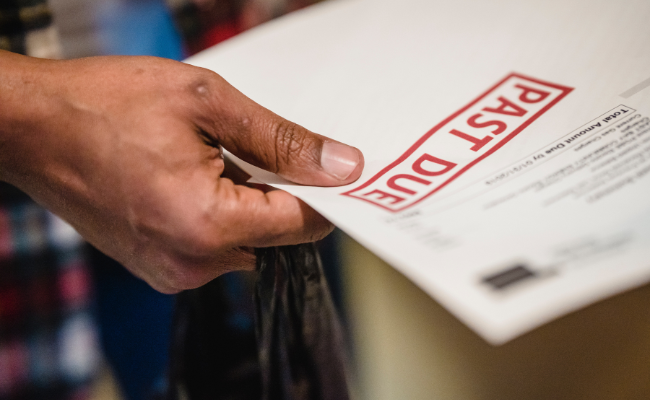How to Fix Your Credit Score: 12 Actionable Steps to Raise Your Credit Score
Many people don’t think about their credit score until they need it for something – a loan, a house, a car, and others. But it’s a good idea to know your credit score early so you won’t be surprised when you get rejected for a purchase. A low credit score will bar you from making certain large purchases, but it doesn’t have to stay that way. There are ways how to fix your credit and raise your credit score. Here’s how to fix your credit right now so you can raise your credit score.
What Is a Credit Score?
A credit score determines the person’s ability to get loans approved or to get a new credit card. Ranging from 300 to 850, a credit score uses a person’s credit history, payment behavior, debt utilization, and other financial factors to determine how much credit an individual can get.
If you want to apply for any loans or a new credit card, the bank or any lenders will check your credit score first. The higher the credit score, the easier it is to get those loans or credit cards with a good deal. On the other hand, the lower the score, the lesser opportunity there is to have a lower interest rate or a new credit card.
An excellent credit score is around 800-850, but having a score around 670-799 is pretty good, too. However, if your credit score is about 300-579, you should check out these tips on how to raise your credit score.
You May Also Like: Should I Get a Credit Card: Things You Should Know
How Are Credit Scores Calculated?
Before we delve into raising the credit score, it’s important to know about the factors on how to get the credit score. With that said, these are the different factors that play a part in calculating credit scores.
Payment History
The payment history contributes 35% of the credit score. Constantly paying your bills full on time gives you an edge in getting a good credit score. Doing so demonstrates to lenders that you are financially responsible and have the capacity to pay them back.
Amounts Owed
Whether it is a loan, credit card balance, or mortgage, the amounts owed greatly influence the credit score by up to 30%. Your credit card utilization ratio is also used to determine your score in the long run. By maintaining a good ratio, you can increase your credit score.
Length of Credit History
The length of a credit history affects the credit score by up to 15%. The earlier you open and maintain an account, the bigger your credit score is. A good credit history guarantees lenders that you have the capability to pay them back.
Credit Mix
Providers also check if you have any outstanding balance from any loans or credit cards to determine your credit score. It can amount to 10%. A diverse credit mix shows lenders that you can manage paying them.
New Credit
Getting a new credit line can also affect the credit score. Before opening any new line, providers check your history with other previous providers. They check whether or not you are capable of paying any money you plan to owe.
Read More: Types of Credit Cards: Which Should You Get?
How to Fix Your Credit Score?
Now that you know what a credit score is and how it’s calculated, it’s time to learn about the tips on how to raise your credit score. By following these steps, you can have a higher one in no time.
1. Review Your Credit Report
The first thing you should do is get copies of all your credit reports and review them very carefully. The three main credit bureaus are Equifax, TransUnion, and Experian, and they are required by law to provide you with a copy of your report at no charge once per year. They don’t mail it to you automatically, though – you have to ask for it. You could also go through a free service such as Credit Karma. All three of your credit reports should be mostly similar, but there may be a few differences between them. Don’t assume they’re the same. Obtain all three and review them carefully.
2. Dispute Negative Marks
Your first task after taking stock of what’s on your credit reports is to try to correct information. Any negative remark that you know to be inaccurate needs to be corrected right away. You can either do it online through a service like Credit Karma or you can contact the credit bureaus directly. If an error is on all three reports, remember to contact all three bureaus. You should start with collection accounts and judgments, as those are the ones that will hurt your credit the most. Once you report the error, the bureau will investigate it with the creditor and either report back to you or remove the error.
3. Dispute Late Payments to Fix Credit Score
You should also report inaccurate late payments so they can be removed. Many lenders will look at your payment history, so these entries can harm you. Report them to each bureau the same way you did the negative marks.
Read More: How to Pay Off Debt: 10 Ways to Kill Debt with a Low Income
4. Dispute Accurate Information
This one is optional, but it can help raise your credit score if successful. You can try to get accurate information removed, such as a payment that was indeed late. The bureau will ask the creditor to verify and if they fail to do so, the remark will be removed. Some creditors will let it go, but some won’t. The ones that are likely to respond are banks, credit card companies, auto finance companies, and mortgage lenders. Smaller collection agencies, local lenders, and small service providers are more likely to just let it go. It’s up to you whether to include this method or not.
5. Ask Creditor Directly to Remove Unwanted Entries
This means asking nicely. If you have had no luck contacting the bureaus, you may want to contact the creditor directly, depending on the circumstances. If you are a longtime customer, they may be willing to intercede with the bureau on your behalf.
6. Increase Credit Limits to Raise Credit Score
Your credit score is closely tied to your credit utilization ratio, which is the relationship between your credit card balance and credit limit, expressed as a percentage. In general, any ratio above 50 percent is harmful to your credit. Increasing your credit limit will decrease the ratio, though not the balance. However, if you feel it will be too tempting to use that extra credit, don’t go there.
7. Open a New Credit Card Account
The credit utilization ratio is affected by both each individual card and your total available credit. While increasing limits on individual cards helps, so does adding a new card that you never use. Go for a card without an annual fee. Again, don’t tempt yourself if you feel it would be too easy to use the new card. It’s not worth the extra debt.
You May Also Like: Debt Management Methods: Successful Strategies for Your Debt
8. Pay Outstanding Balances
This is one of the most important, but also one of the most difficult. You could fix everything else, but if outstanding balances are still just sitting there, it will not look good for you. Pay balances in full if you can, or you can arrange regular payments. In fact, monthly installments will raise your credit score because it shows a solid payment history.
9. Pay High-Interest and Newer Accounts First
High-interest accounts are the ones that threaten to drown you first. Newer accounts should also be paid quickly, since the age of an account can impact your credit as well. Arrange to pay these accounts first.
10. Become an Authorized User on Someone Else’s Card
If you have a spouse or family member with a credit card that has no balance and a good payment history, see if they can add you as an authorized user on the card. Their good credit will start to have a positive effect on yours, as those positive marks start showing up.
11. Keep Old Credit Cards Open
Credit history has a large impact in regards to your credit score. Closing old credit cards can drive down your score. Hang on to these cards instead and try not to use them unless you need to.
12. Pay Every Bill On Time
This is one of the most important steps. You don’t want to undo all of the work you’ve done to fix your credit. Make sure every bill that comes in, no matter what it is, gets paid on time.
Conclusion
These steps will help you repair damaged credit. This will help you raise a poor credit score, so you will be in better standing when it’s time to seek a loan for a major purchase. It will also help you maintain good credit, so you don’t have to go through the process of fixing it again.
Read More: What Are the Advantages of Credit? Save Money and Time Now
Frequently Asked Questions
What are some common credit score killers to avoid?
Several factors can harm your credit score. Avoid late payments, as they can significantly impact your score. High credit card balances and maxing out your cards will also hurt your score. Opening multiple credit accounts in a short period and applying for too many loans can be detrimental. Lastly, defaulting on loans or declaring bankruptcy will have severe and long-lasting negative effects on your credit score.
Is it possible to fix my credit score on my own, or should I seek professional help?
While you can work on improving your credit score independently, seeking professional help from credit counseling agencies can be beneficial. They can provide personalized advice, help negotiate with creditors, and create a customized action plan for your situation. However, be cautious of scams or companies promising quick fixes for a fee, as legitimate credit improvement takes time and effort.
How long does it take to see results when repairing my credit score?
The time it takes to see results when fixing your credit score varies depending on your individual credit history and the extent of the issues. Minor improvements can occur in a few months, while significant changes may take up to a year or more. Consistently making positive credit choices, such as on-time payments and responsible credit use, will gradually lead to an improved credit score over time.














